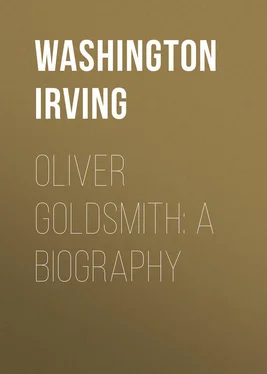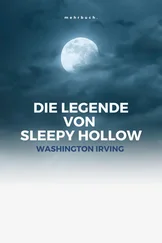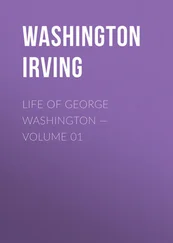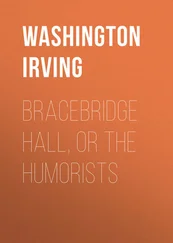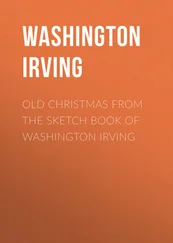Washington Irving - Oliver Goldsmith - A Biography
Здесь есть возможность читать онлайн «Washington Irving - Oliver Goldsmith - A Biography» — ознакомительный отрывок электронной книги совершенно бесплатно, а после прочтения отрывка купить полную версию. В некоторых случаях можно слушать аудио, скачать через торрент в формате fb2 и присутствует краткое содержание. Жанр: foreign_antique, foreign_prose, на английском языке. Описание произведения, (предисловие) а так же отзывы посетителей доступны на портале библиотеки ЛибКат.
- Название:Oliver Goldsmith: A Biography
- Автор:
- Жанр:
- Год:неизвестен
- ISBN:нет данных
- Рейтинг книги:4 / 5. Голосов: 1
-
Избранное:Добавить в избранное
- Отзывы:
-
Ваша оценка:
- 80
- 1
- 2
- 3
- 4
- 5
Oliver Goldsmith: A Biography: краткое содержание, описание и аннотация
Предлагаем к чтению аннотацию, описание, краткое содержание или предисловие (зависит от того, что написал сам автор книги «Oliver Goldsmith: A Biography»). Если вы не нашли необходимую информацию о книге — напишите в комментариях, мы постараемся отыскать её.
Oliver Goldsmith: A Biography — читать онлайн ознакомительный отрывок
Ниже представлен текст книги, разбитый по страницам. Система сохранения места последней прочитанной страницы, позволяет с удобством читать онлайн бесплатно книгу «Oliver Goldsmith: A Biography», без необходимости каждый раз заново искать на чём Вы остановились. Поставьте закладку, и сможете в любой момент перейти на страницу, на которой закончили чтение.
Интервал:
Закладка:
Charles Goldsmith did not remain long to embarrass his brother in London. With the same roving disposition and inconsiderate temper of Oliver, he suddenly departed in a humble capacity to seek his fortune in the West Indies, and nothing was heard of him for above thirty years, when, after having been given up as dead by his friends, he made his reappearance in England.
Shortly after his departure Goldsmith wrote a letter to his brother-in-law, Daniel Hodson, Esq., of which the following is an extract; it was partly intended, no doubt, to dissipate any further illusions concerning his fortunes which might float on the magnificent imagination of his friends in Ballymahon.
"I suppose you desire to know my present situation. As there is nothing in it at which I should blush, or which mankind could censure, I see no reason for making it a secret. In short, by a very little practice as a physician, and a very little reputation as a poet, I make a shift to live. Nothing is more apt to introduce us to the gates of the muses than poverty; but it were well if they only left us at the door. The mischief is they sometimes choose to give us their company to the entertainment; and want, instead of being gentleman-usher, often turns master of the ceremonies.
"Thus, upon learning I write, no doubt you imagine I starve; and the name of an author naturally reminds you of a garret. In this particular I do not think proper to undeceive my friends. But, whether I eat or starve, live in a first floor or four pairs of stairs high, I still remember them with ardor; nay, my very country comes in for a share of my affection. Unaccountable fondness for country, this maladie du pais , as the French call it! Unaccountable that he should still have an affection for a place, who never, when in it, received above common civility; who never brought anything out of it except his brogue and his blunders. Surely my affection is equally ridiculous with the Scotchman's, who refused to be cured of the itch because it made him unco' thoughtful of his wife and bonny Inverary.
"But now, to be serious: let me ask myself what gives me a wish to see Ireland again. The country is a fine one, perhaps? No. There are good company in Ireland? No. The conversation there is generally made up of a smutty toast or a bawdy song; the vivacity supported by some humble cousin, who had just folly enough to earn his dinner. Then, perhaps, there's more wit and learning among the Irish? Oh, Lord, no! There has been more money spent in the encouragement of the Padareen mare there one season than given in rewards to learned men since the time of Usher. All their productions in learning amount to perhaps a translation, or a few tracts in divinity; and all their productions in wit to just nothing at all. Why the plague, then, so fond of Ireland? Then, all at once, because you, my dear friend, and a few more who are exceptions to the general picture, have a residence there. This it is that gives me all the pangs I feel in separation. I confess I carry this spirit sometimes to the souring the pleasures I at present possess. If I go to the opera, where Signora Columba pours out all the mazes of melody, I sit and sigh for Lissoy fireside, and Johnny Armstrong's 'Last Good-night' from Peggy Golden. If I climb Hampstead Hill, than where nature never exhibited a more magnificent prospect, I confess it fine; but then I had rather be placed on the little mount before Lissoy gate, and there take in, to me, the most pleasing horizon in nature.
"Before Charles came hither my thoughts sometimes found refuge from severer studies among my friends in Ireland. I fancied strange revolutions at home; but I find it was the rapidity of my own motion that gave an imaginary one to objects really at rest. No alterations there. Some friends, he tells me, are still lean, but very rich; others very fat, but still very poor. Nay, all the news I hear of you is, that you sally out in visits among the neighbors, and sometimes make a migration from the blue bed to the brown. I could from my heart wish that you and she (Mrs. Hodson), and Lissoy and Ballymahon, and all of you, would fairly make a migration into Middlesex; though, upon second thoughts, this might be attended with a few inconveniences. Therefore, as the mountain will not come to Mohammed, why Mohammed shall go to the mountain; or, to speak plain English, as you cannot conveniently pay me a visit, if next summer I can contrive to be absent six weeks from London, I shall spend three of them among my friends in Ireland. But first, believe me, my design is purely to visit, and neither to cut a figure nor levy contributions; neither to excite envy nor solicit favor; in fact, my circumstances are adapted to neither. I am too poor to be gazed at, and too rich to need assistance."
CHAPTER NINE
HACKNEY AUTHORSHIP – THOUGHTS OF LITERARY SUICIDE – RETURN TO PECKHAM – ORIENTAL PROJECTS – LITERARY ENTERPRISE TO RAISE FUNDS – LETTER TO EDWARD WELLS – TO ROBERT BRYANTON – DEATH OF UNCLE CONTARINE – LETTER TO COUSIN JANE
For some time Goldsmith continued to write miscellaneously for reviews and other periodical publications, but without making any decided hit, to use a technical term. Indeed, as yet he appeared destitute of the strong excitement of literary ambition, and wrote only on the spur of necessity and at the urgent importunity of his bookseller. His indolent and truant disposition, ever averse from labor and delighting in holiday, had to be scourged up to its task; still it was this very truant disposition which threw an unconscious charm over everything he wrote; bringing with it honeyed thoughts and pictured images which had sprung up in his mind in the sunny hours of idleness: these effusions, dashed off on compulsion in the exigency of the moment, were published anonymously; so that they made no collective impression on the public, and reflected no fame on the name of their author.
In an essay published some time subsequently in the "Bee," Goldsmith adverts, in his own humorous way, to his impatience at the tardiness with which his desultory and unacknowledged essays crept into notice. "I was once induced," says he, "to show my indignation against the public by discontinuing my efforts to please; and was bravely resolved, like Raleigh, to vex them by burning my manuscripts in a passion. Upon reflection, however, I considered what set or body of people would be displeased at my rashness. The sun, after so sad an accident, might shine next morning as bright as usual; men might laugh and sing the next day, and transact business as before; and not a single creature feel any regret but myself. Instead of having Apollo in mourning or the Muses in a fit of the spleen; instead of having the learned world apostrophizing at my untimely decease; perhaps all Grub Street might laugh at my fate, and self-approving dignity be unable to shield me from ridicule."
Circumstances occurred about this time to give a new direction to Goldsmith's hopes and schemes. Having resumed for a brief period the superintendence of the Peckham school during a fit of illness of Dr. Milner, that gentleman, in requital for his timely services, promised to use his influence with a friend, an East India director, to procure him a medical appointment in India.
There was every reason to believe that the influence of Dr. Milner would be effectual; but how was Goldsmith to find the ways and means of fitting himself out for a voyage to the Indies? In this emergency he was driven to a more extended exercise of the pen than he had yet attempted. His skirmishing among books as a reviewer, and his disputatious ramble among the schools and universities and literati of the Continent, had filled his mind with facts and observations which he now set about digesting into a treatise of some magnitude, to be entitled "An Inquiry into the Present State of Polite Learning in Europe." As the work grew on his hands his sanguine temper ran ahead of his labors. Feeling secure of success in England, he was anxious to forestall the piracy of the Irish press; for as yet, the Union not having taken place, the English law of copyright did not extend to the other side of the Irish Channel. He wrote, therefore, to his friends in Ireland, urging them to circulate his proposals for his contemplated work, and obtain subscriptions payable in advance; the money to be transmitted to a Mr. Bradley, an eminent bookseller in Dublin, who would give a receipt for it and be accountable for the delivery of the books. The letters written by him on this occasion are worthy of copious citation as being full of character and interest. One was to his relative and college intimate, Edward Wells, who had studied for the bar, but was now living at ease on his estate at Roscommon. "You have quitted," writes Goldsmith, "the plan of life which you once intended to pursue, and given up ambition for domestic tranquillity. I cannot avoid feeling some regret that one of my few friends has declined a pursuit in which he had every reason to expect success. I have often let my fancy loose when you were the subject, and have imagined you gracing the bench, or thundering at the bar: while I have taken no small pride to myself, and whispered to all that I could come near, that this was my cousin. Instead of this, it seems, you are merely contented to be a happy man; to be esteemed by your acquaintances; to cultivate your paternal acres; to take unmolested a nap under one of your own hawthorns or in Mrs. Wells' bedchamber, which, even a poet must confess, is rather the more comfortable place of the two. But, however your resolutions may be altered with regard to your situation in life, I persuade myself they are unalterable with respect to your friends in it. I cannot think the world has taken such entire possession of that heart (once so susceptible of friendship) as not to have left a corner there for a friend or two, but I flatter myself that even I have a place among the number. This I have a claim to from the similitude of our dispositions; or setting that aside, I can demand it as a right by the most equitable law of nature; I mean that of retaliation; for indeed you have more than your share in mine. I am a man of few professions; and yet at this very instant I cannot avoid the painful apprehension that my present professions (which speak not half my feelings) should be considered only as a pretext to cover a request, as I have a request to make. No, my dear Ned, I know you are too generous to think so, and you know me too proud to stoop to unnecessary insincerity – I have a request, it is true, to make; but as I know to whom I am a petitioner, I make it without diffidence or confusion. It is in short, this, I am going to publish a book in London," etc. The residue of the letter specifies the nature of the request, which was merely to aid in circulating his proposals and obtaining subscriptions. The letter of the poor author, however, was unattended to and unacknowledged by the prosperous Mr. Wells, of Roscommon, though in after years he was proud to claim relationship to Dr. Goldsmith, when he had risen to celebrity.
Читать дальшеИнтервал:
Закладка:
Похожие книги на «Oliver Goldsmith: A Biography»
Представляем Вашему вниманию похожие книги на «Oliver Goldsmith: A Biography» списком для выбора. Мы отобрали схожую по названию и смыслу литературу в надежде предоставить читателям больше вариантов отыскать новые, интересные, ещё непрочитанные произведения.
Обсуждение, отзывы о книге «Oliver Goldsmith: A Biography» и просто собственные мнения читателей. Оставьте ваши комментарии, напишите, что Вы думаете о произведении, его смысле или главных героях. Укажите что конкретно понравилось, а что нет, и почему Вы так считаете.
